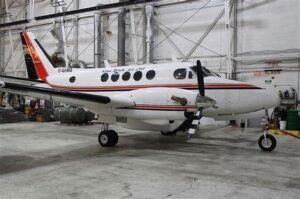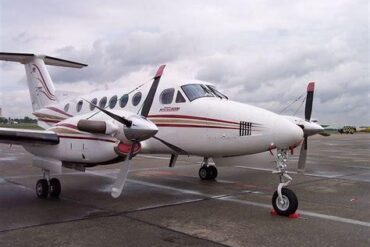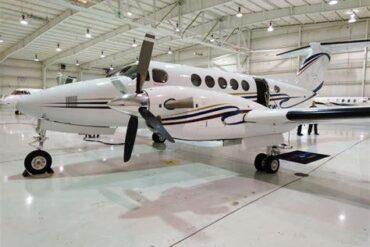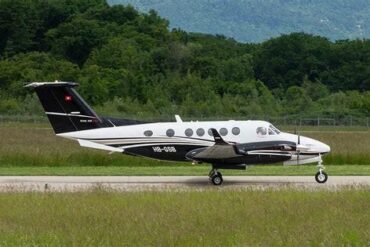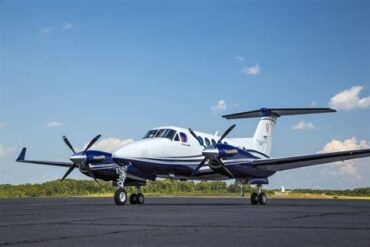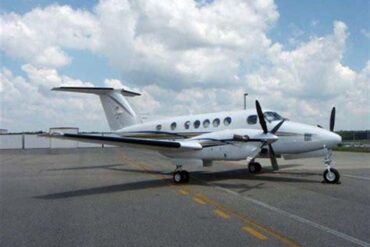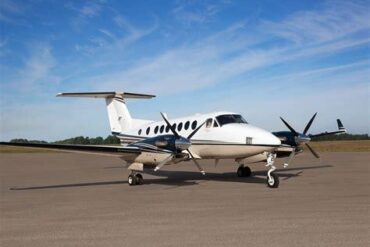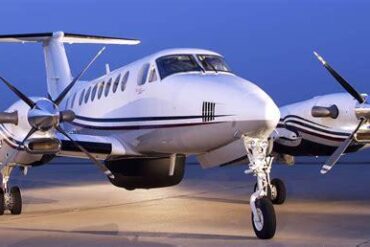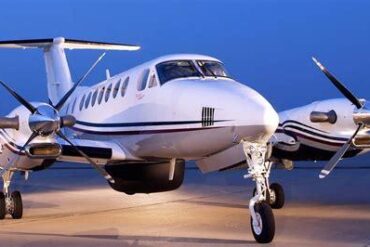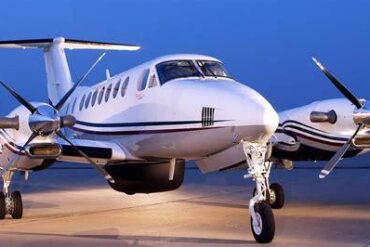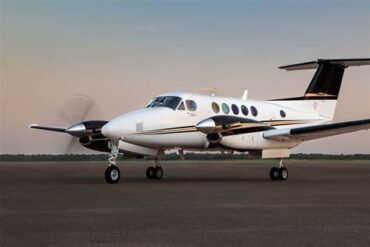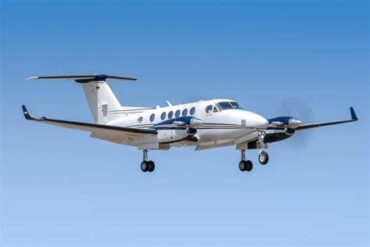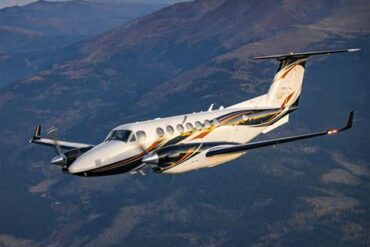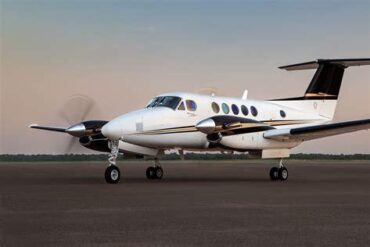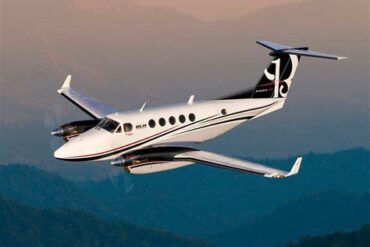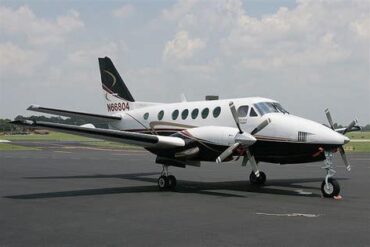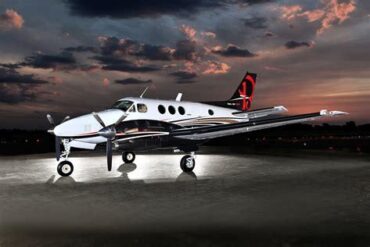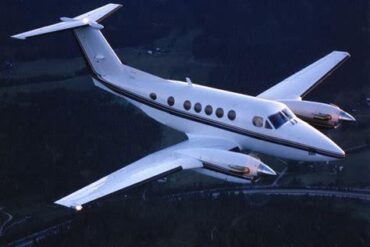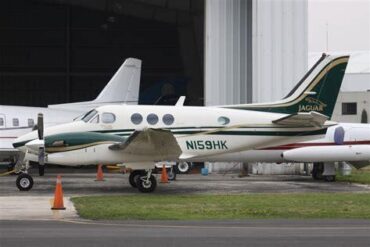The Beechcraft King Air A100 is a versatile twin-engine turboprop aircraft that has made a significant mark in the aviation industry since its introduction. Known for its reliability, performance, and spacious cabin, it serves a variety of roles from business travel to air ambulance services. In this article, we will delve into the price of the Beechcraft King Air A100 and its operating costs, providing a comprehensive understanding for potential buyers and operators.
Overview of the Beechcraft King Air A100
Introduced in the late 1960s, the Beechcraft King Air A100 represents a significant evolution in the King Air line. It features a pressurized cabin, accommodating up to six passengers comfortably, making it an ideal choice for both short and medium-haul flights. The aircraft is powered by PT6A-28 engines, providing a maximum cruise speed of approximately 250 knots and a range of around 1,500 nautical miles.
With its robust performance characteristics, the King Air A100 is not only favored for corporate travel but also for cargo transport and special mission applications. The versatility of this aircraft makes it a valuable asset in various sectors, including medical evacuation and law enforcement.
Acquisition Costs of the Beechcraft King Air A100
When considering the purchase price of a Beechcraft King Air A100, several factors come into play, including the year of manufacture, total flight hours, condition, and any modifications or upgrades that may have been performed. On average, the market price for a pre-owned Beechcraft King Air A100 typically ranges from $1.5 million to $3 million.
Factors Influencing the Price
-
Age and Condition: Newer models generally command higher prices. A well-maintained aircraft with low flight hours is more desirable and can fetch a premium.
-
Modifications and Upgrades: Aircraft equipped with modern avionics, upgraded interiors, or enhanced performance modifications often see an increase in value.
-
Market Demand: The demand for turboprop aircraft can fluctuate based on economic conditions and trends in private aviation. This demand can directly impact pricing.
Financing Options
For those looking to finance the purchase of a King Air A100, several options are available, including traditional loans, leasing, and fractional ownership. Each financing method has its own set of benefits and considerations that can affect overall costs.
Operating Costs of the Beechcraft King Air A100
Understanding the operating costs associated with the Beechcraft King Air A100 is crucial for prospective owners and operators. Operating costs encompass various expenses such as fuel, maintenance, insurance, pilot salaries, and hangar fees.
Fuel Costs
One of the most significant operating expenses for any aircraft is fuel. The King Air A100 consumes approximately 30 to 35 gallons per hour (GPH) of Jet A fuel, depending on various factors such as weight, altitude, and weather conditions. With current fuel prices averaging around $5 to $7 per gallon, operators can expect to spend about $150 to $245 per hour on fuel alone.
Maintenance Costs
Regular maintenance is essential to ensure the safety and longevity of the aircraft. Maintenance costs for the Beechcraft King Air A100 can vary significantly based on usage, age, and condition. Typically, operators can expect to allocate around $50,000 to $100,000 annually for routine maintenance, inspections, and parts replacement.
Insurance Costs
Insurance is another critical aspect of operating costs. The annual insurance premium for a Beechcraft King Air A100 can range from $10,000 to $25,000, depending on factors such as the operator’s experience, flight hours, and coverage limits.
Pilot Salaries
Employing qualified pilots is vital for the operation of any aircraft. Depending on the experience level and location, salaries for King Air A100 pilots can vary. On average, operators should budget approximately $70,000 to $120,000 per year for a single pilot, which includes salaries, benefits, and training costs.
Hangar Fees
Storage costs for the aircraft can also add up. Hangar fees depend on the location and size of the facility but can range from $500 to $2,500 per month. For operators who fly frequently, securing a dedicated hangar space is often more economical than relying on transient parking at airports.
Total Cost of Ownership
When calculating the total cost of ownership for the Beechcraft King Air A100, prospective buyers should consider all the aforementioned factors cumulatively. On average, total operating costs can range from $600 to $1,200 per flight hour. This figure includes all operating expenses, providing a more comprehensive view of what it costs to operate the aircraft effectively.
Depreciation
It’s also important to factor in depreciation, which is a significant cost of ownership. Aircraft typically depreciate at a rate of about 5% to 10% per year. Understanding how depreciation affects the overall value of the aircraft is essential for financial planning and resale considerations.
Comparative Analysis with Competitors
In the realm of turboprop aircraft, the Beechcraft King Air A100 competes with several other models, such as the Piper Navajo and Cessna Conquest. When comparing these aircraft, the King Air A100 often stands out due to its superior performance, cabin comfort, and operational efficiency.
Performance Metrics
-
Cruise Speed: The King Air A100 boasts a cruise speed of approximately 250 knots, whereas its competitors often fall slightly short, making the King Air a better choice for time-sensitive missions.
-
Range: With a range of around 1,500 nautical miles, the King Air A100 allows for longer flights without the need for refueling, a key consideration for many operators.
Cabin Comfort
The cabin of the King Air A100 is designed with passenger comfort in mind. With ample headroom and a spacious layout, it provides a more enjoyable flying experience compared to many of its counterparts.
Conclusion
The Beechcraft King Air A100 presents a compelling option for those seeking a reliable, versatile, and high-performing turboprop aircraft. While the initial purchase price and ongoing operating costs may seem significant, the benefits of owning such an aircraft often outweigh these expenses when considering its capabilities and potential return on investment. By understanding the various factors that influence both acquisition and operating costs, prospective buyers can make informed decisions that align with their aviation needs.
For individuals and businesses looking to invest in an aircraft that combines performance with comfort, the Beechcraft King Air A100 remains an excellent choice in the competitive landscape of turboprop aviation.
